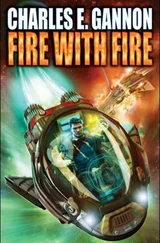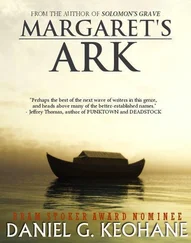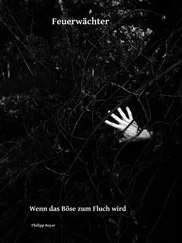C. Palov - Ark of Fire
Здесь есть возможность читать онлайн «C. Palov - Ark of Fire» весь текст электронной книги совершенно бесплатно (целиком полную версию без сокращений). В некоторых случаях можно слушать аудио, скачать через торрент в формате fb2 и присутствует краткое содержание. Год выпуска: 0101, Издательство: Penguin USA, Inc., Жанр: Старинная литература, на английском языке. Описание произведения, (предисловие) а так же отзывы посетителей доступны на портале библиотеки ЛибКат.
- Название:Ark of Fire
- Автор:
- Издательство:Penguin USA, Inc.
- Жанр:
- Год:0101
- ISBN:нет данных
- Рейтинг книги:3 / 5. Голосов: 1
-
Избранное:Добавить в избранное
- Отзывы:
-
Ваша оценка:
- 60
- 1
- 2
- 3
- 4
- 5
Ark of Fire: краткое содержание, описание и аннотация
Предлагаем к чтению аннотацию, описание, краткое содержание или предисловие (зависит от того, что написал сам автор книги «Ark of Fire»). Если вы не нашли необходимую информацию о книге — напишите в комментариях, мы постараемся отыскать её.
Ark of Fire — читать онлайн бесплатно полную книгу (весь текст) целиком
Ниже представлен текст книги, разбитый по страницам. Система сохранения места последней прочитанной страницы, позволяет с удобством читать онлайн бесплатно книгу «Ark of Fire», без необходимости каждый раз заново искать на чём Вы остановились. Поставьте закладку, и сможете в любой момент перейти на страницу, на которой закончили чтение.
Интервал:
Закладка:
Like ancient Egypt, America was headed down the path of destruction, the world no different now than it was in the days of the pharaoh. Plague upon plague had been sent upon the godless pagans, none immune save the God-fearing Moses and his Hebrew entourage. So, too, this epoch would see God’s might as never before, his “terrible swift sword” striking down the false prophets, the feel-good TV shrinks, the prosperity gurus. Those who did not heed the warnings of the Old Testament prophets would discover firsthand how God judges sin.
With so little time left, America must have a revival of repentance, the nation having strayed from the tenets of God’s word as transcribed by the prophets. A course correction was needed. Holy warriors were needed.
MacFarlane walked over to the framed map that hung behind his desk. Starting at Washington, D.C., he cast his gaze due east. To Jerusalem.
“Oh, holy city of Zion. God’s glittering jewel,” he murmured. “God said the Temple shall be rebuilt . . . and so it shall.” Rejuvenated, he turned away from the map. “Rise to your feet, boy, and start acting like the man of God that you are.”
As Braxton shoved himself upright, a disembodied voice came over the telephone intercom. “They just brought Eliot Hopkins into the waiting room, sir.”
Pleased, MacFarlane turned to his subordinate. “Show the museum director into the office. And make sure you give him a hearty Rosemont welcome.”

CHAPTER 23
“How is it that you know so much about Moses and his Egyptian roots?” Edie inquired as she and Caedmon waited for the computer to boot up.
The hotel night clerk, a good-natured student at the nearby George Mason School of Law, had given them access to a computer in the back office. More a storage alcove than a true office, the room was stacked with plastic bins and boxes. Sitting side by side at the computer, Caedmon in the lone swivel chair, Edie perched on a bin, they were there to cyber sleuth. Although what Caedmon thought he’d find was a mystery to her.
“For a brief time, I dabbled in Egyptology while an undergraduate student at Oxford,” Caedmon said in response to her question. “That was before I became thoroughly infatuated with the Knights Templar and jumped ship, as you Yanks are prone to say.”
“The Knights Templar? Yeah, I can see that.” Volunteering a personal tidbit of her own, she said, “I’ve got a master’s degree in women’s studies.”
Broadly grinning, Caedmon winked at her. “Nearly as obscure a course of study as medieval history. And this business with taking the digital photographs at the Hopkins Museum?”
“A girl’s got to make a living somehow.”
Enjoying the flirtatious banter, she wondered if anything would come of it. Because of the near miss at the National Gallery, they’d decided against separate rooms. Would he put the moves on her once the bed covers were turned down? Imagining what that might be like, she stared at his hands, admiring the raised pattern of veins. She’d seen those hands before. In Florence on Michelangelo’s David .
Admittedly intrigued by the brainy, street-smart man with the masculine hands, she decided to pry the lid a bit higher. “Earlier today you said something about being on a book tour.”
“I recently wrote a book about the Egyptian mystery cults. Which permits me to put the word author on my curriculum vitae.”
“That would make you—what?—a historian?”
Caedmon keyed in the logon code given to them by the front desk clerk. “Actually, I prefer to think of myself as a r ehistorian.”
“Last time I looked, that particular word hadn’t made it to the pages of Webster’s.”
“Nor the Oxford English Dictionary. But seeing as there’s no word to accurately describe what I do, I was forced to improvise.”
“And just how does a rehistorian differ from your standard garden-variety historian?”
“An historian gathers, examines, and interprets the material evidence that remains from the near and distant past,” Caedmon replied as he pulled up the Google home page. “In contrast, a rehistorian reveals that which has remained hidden from view, scholarship and speculation going hand in hand.”
She smiled. “Well, you did lay claim to being an iconoclast.”
“So I did. But enough about me.” Leaning forward, he retrieved the pad of blank notepaper lying on top of the desk, the Holiday Inn logo stamped across the top border. He then removed a pen from his breast pocket. “I want you to tell me every pertinent detail you can recall from your earlier ordeal.”
“You mean at the Hopkins Museum?” When he nodded, she propped her chin on her balled fist, the memories admittedly convoluted. “Well, I already told you about the ring with the Jerusalem cross. But what I didn’t tell you is that right after he murdered Dr. Padgham, the killer called someone on his cell phone. I counted seven digital beeps, so it had to be a local call.”
Caedmon scribbled the words D.C. phone call on the pad of paper.
“And I remember that the killer said something about going to ‘London at nineteen hundred hours.’ ” Edie bracketed the last five words with air quotation marks. “Or maybe that was the cop who mentioned London. I’m not sure. Sorry. I don’t remember. No! Wait!” Excited, Edie slapped her palm against the desktop. “The killer mentioned a place called Rosemont.”
“Let me make certain that I have this correct: D.C. phone call, London nineteen hundred hours, and Rosemont.” When she nodded, he ripped the sheet of paper from the pad.
“Now what?” Edie scooted the green bin closer to the desk so she could better see the computer monitor.
“Now, we delve into the abyss.”
Edie nudged him in the arm with her elbow. “Thanks for that bit of heightened drama. Like I wasn’t scared enough already.”
Caedmon glanced first at his arm, then at her face. For several seconds they wordlessly stared at one another, two strangers drawn together by a trio of seemingly unconnected clues.
As she continued to gaze into Caedmon’s blue eyes, Edie detected a fire. A passion. But for what, she had no idea. History. Religion. The occult sciences. Hard to tell.
The first to break eye contact, Caedmon typed the words Rosemont + D.C. into the search field. “Since the London reference is too vague, we’ll start with this.”
“You know, I remember the good ol’ days when everyone used to have what was quaintly referred to as a ‘private life.’”
“Yes, little did Orwell imagine that Big Brother would come in the guise of a desktop computer.”
“Looks like we’ve got a hit,” she exclaimed a half second later, pointing to the computer screen. “It’s a Wikipedia entry for Rosemont Security Consultants.” Quickly, she scanned the brief description. Then, baffled, she turned to Caedmon. “Rosemont is some sort of security firm headquartered in Washington.”
Caedmon clicked on the entry. To her dismay, only one scant paragraph appeared. Caedmon hit the Print button and the HP printer whirred to life.
Edie read the particulars aloud. “‘Founded in 2006 by former Marine Corps colonel Stanford MacFarlane, Rosemont is one of several security consulting firms created in the wake of the Afghan and Iraqi conflicts. Specializing in security consulting, stability operations, and tactical support, Rosemont has security contracts in twenty-two nations worldwide.’” As the information began to sink in, Edie’s shoulders slumped. “A security consulting firm . . . that’s a polite way of saying that Rosemont specializes in mercenaries for hire.”
Читать дальшеИнтервал:
Закладка:
Похожие книги на «Ark of Fire»
Представляем Вашему вниманию похожие книги на «Ark of Fire» списком для выбора. Мы отобрали схожую по названию и смыслу литературу в надежде предоставить читателям больше вариантов отыскать новые, интересные, ещё непрочитанные произведения.
Обсуждение, отзывы о книге «Ark of Fire» и просто собственные мнения читателей. Оставьте ваши комментарии, напишите, что Вы думаете о произведении, его смысле или главных героях. Укажите что конкретно понравилось, а что нет, и почему Вы так считаете.










